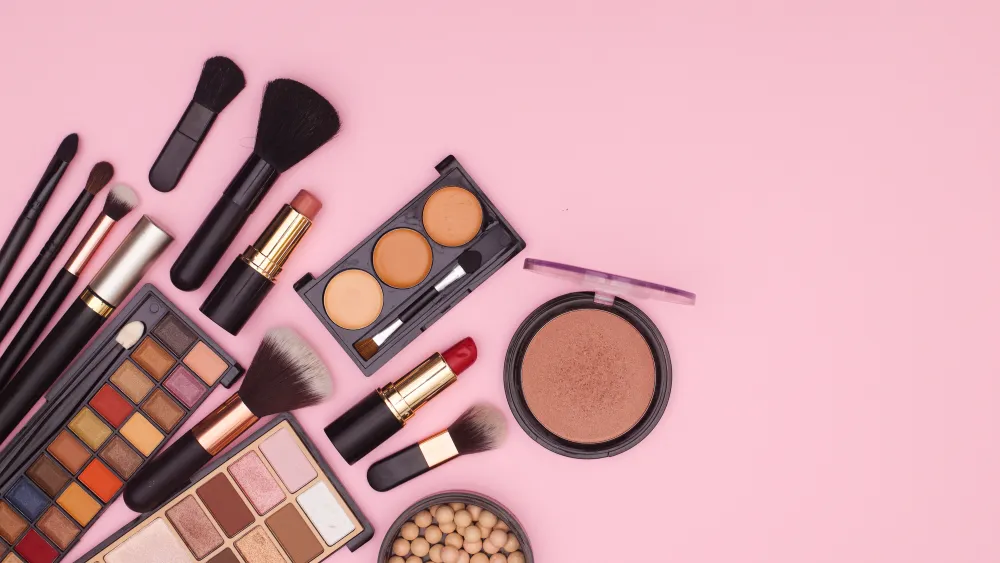Healthy Lifestyle
Cosmetics Make a Comeback as Masks Come Off: Helpful and Healthful Tips as You Resume Your Beauty Routine
Published: June 18, 2021

After months of wearing masks, meeting colleagues over Zoom and having little face-to-face interaction with anyone outside our homes, many of us are looking back on one of few silver linings to it all: no need for all the makeup and beauty products we’ve long considered must-haves.
Thanks to COVID-19 vaccinations, many of us are regaining a bit of normalcy as we begin emerging from our homes with our lip gloss in tow. Recent beauty and cosmetic sales indicate that many people are spending money on their appearance again. But even if you’re someone who’s never going back to your pre-pandemic beauty routine, there are still some things you may want to keep in mind before dusting off your makeup bag.
Makeup, Moisturizer and Sunscreen Expire
If you’ve been working from home regularly, you may have been skimping on sunscreen – or your SPF tinted moisturizer. Check that expiration date before slathering it on again. Don’t see one? Take a look and take a whiff. If it looks watery, clumpy or discolored or just smells off, you may be better off tossing.
Here’s a quick reference guide:
- Sunscreen is generally good up to a year. You’re guaranteed the best protection within six months.
- Liquid and cream foundation (with or without SPF) usually expire after six months.
- Powder and eye shadow can be used up to two years.
- Eyeliner and mascara are typically good for three months.
- Lipstick and gloss can be kept up two years. You’ll want to toss any lip product that you may have used while sick with a cold or COVID-19.
- Hair products should be tossed after a year. Aerosol products – like hair spray and mousse – can be kept much longer.
So, why not use expired beauty products? As soon as you introduce products to your fingers and face, they begin collecting germs and growing bacteria. Using expired, decomposed products can lead to acne and irritation while increasing your risk of infection.
Helpful tip: If you’re feeling inspired to refresh your makeup bag, don’t forget to organize your new products according to the date they’re opened. You’ll never question whether it’s time for a foundation upgrade again!
Clean and Replace Your Brushes and Sponges Regularly
You should be cleaning your makeup brushes and reusable sponges/blenders at least once a week, especially if you’re prone to breakouts. So, if it’s been longer than that (like all pandemic long), your beauty tools are overdue for a good cleaning – or even an upgrade. Reusable sponges can harbor bacteria and skin cells, especially if they’re not cleaned and replaced regularly.
It’s a good idea to replace your brushes and reusable sponges every three months. If you take good care of your brushes and they’re not shedding, smelling foul or looking discolored, you can usually stretch that time frame out a bit.
Helpful tip: There’s no need to buy a special cleanser. An antibacterial, fragrance-free dish soap with warm water works just fine. Rinse until the water runs clear and air-dry on a paper towel.
Teeth Whitening Agents Expire, Too
At-home teeth whitening systems are generally considered safe. But remember: They can cause a lot of uncomfortable gum sensitivity – a rather annoying side effect that people often forget about.
And if you happen to see a box of strips on sale at your local drugstore, check the expiration date. Teeth whitening agents are usually only good for only a year. Overtime, the hydrogen peroxide in them breaks down, leaving you with only gel that won’t actually brighten your smile. The same is true for the box of strips you may have stashed under your bathroom sink.
Helpful tip: As you’re thinking about the effects that all that red wine and coffee have had on your teeth this past year, consider scheduling that dental appointment you may have put off months ago. Studies have shown that gum disease is associated with an increased risk of developing heart disease. And dentists have seen a rise in stress-related teeth grinding, clenching and other dental conditions since the beginning of the pandemic.
You Could Be OD-ing It on Your Dry Shampoo
Dry shampoo became a staple for a lot of us during the pandemic (Hello, less frequent washing! It’s a process, ladies. I feel you.). But the oil-absorbing product may be growing even more popular now as more of us head back into the office and out into the public.
The downfall? Too much of it can cause irritation, leading to a dry, itchy scalp and, potentially, more hair breakage. Try to use it sparingly – no more than twice a week. It should be used only on the spots that need it – not as part of your daily hair routine. And try to avoid spraying it directly onto your scalp. This can lead to skin irritation and clogged follicles, which may cause scalp acne.
Helpful tip: Opt for hair products that don’t have alcohol listed as one of the first few ingredients, as it can make your strands more dry, frizzy and brittle. You can also easily disguise oily hair with a bun or braid.
One More Helpful Tip
The best tip of all is to talk to your dermatologist if you have questions about a safe and healthy beauty routine. Shoot us a message via Methodist My Care or discuss your concerns at your next appointment. We’re dedicated to making you feel good in your unmasked, public-facing skin!
More Resources
- Learn more about how to love your skin this summer.
- Learn the differences between chemical and physical sunscreen.
- Learn more about Methodist My Care.


